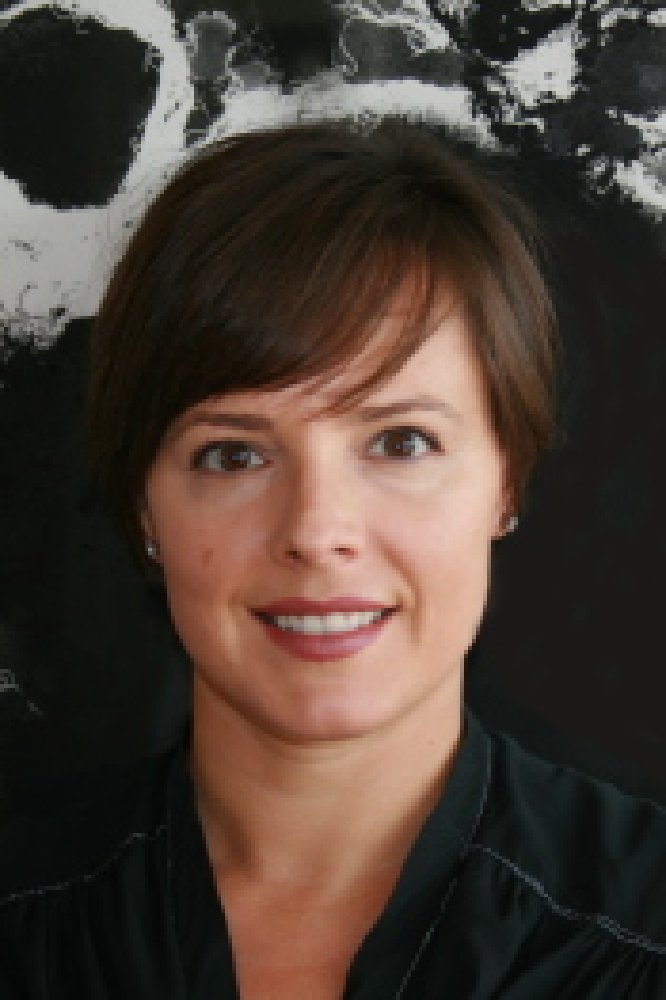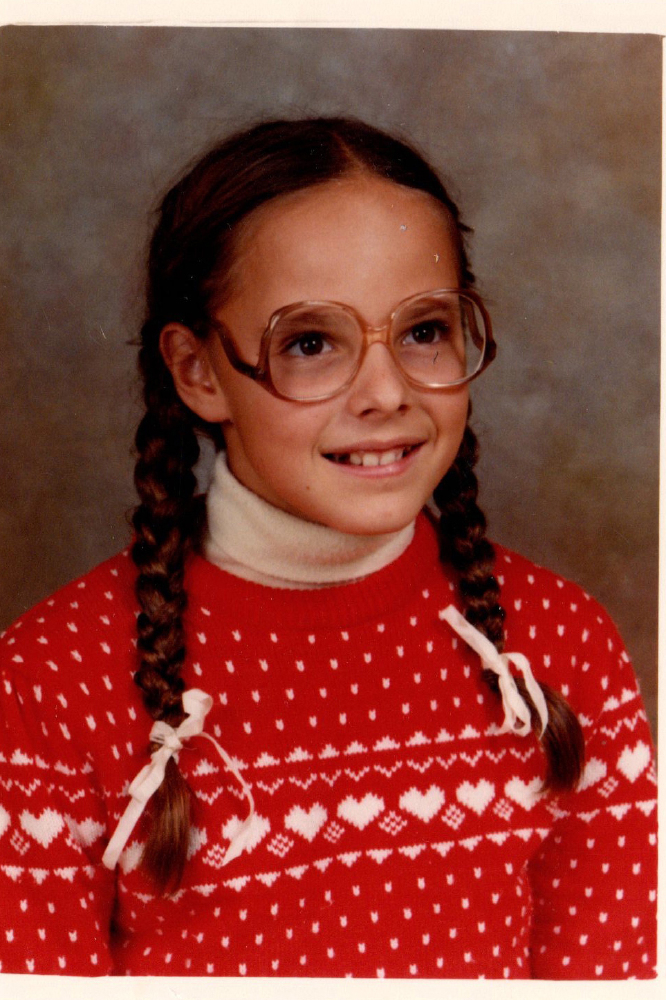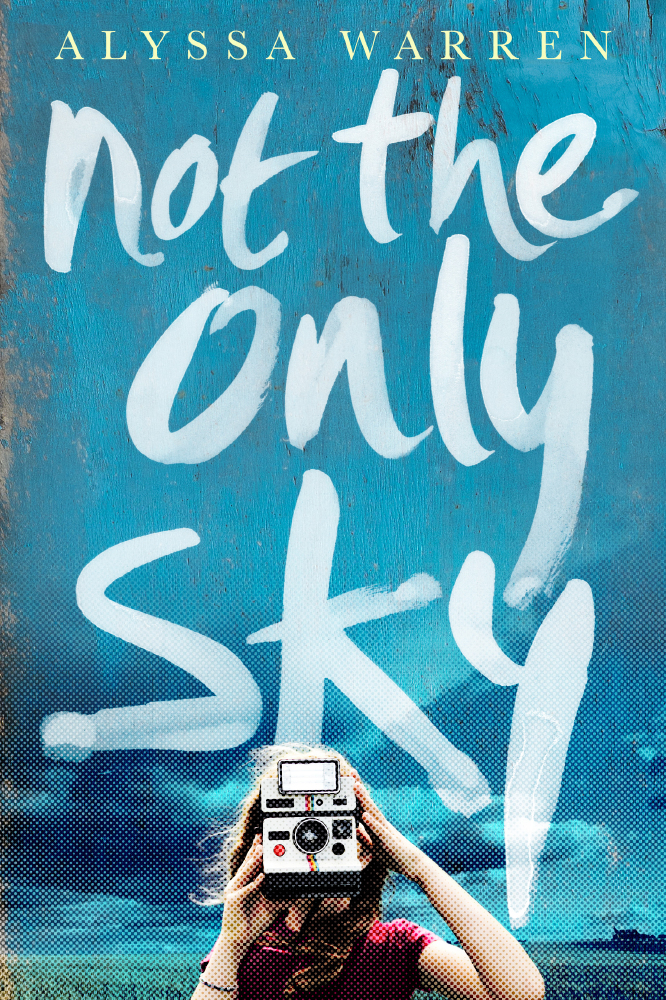Alyssa Warren's new book, Not The Only Sky is out today so she tells us a little bit more about the author behind the books.

Alyssa Warren
Wild child. Growing up in the South Dakota countryside we were adventurous, free kids, the whole neighborhood group not unlike a pack of wild dogs. With no adult supervision, we’d climb trees to drop rocks on bulls, shoot targets with BB guns or see who could ice skate closest to the open, unfrozen rapids without cracking the ice. We were always muddy, always building things, creating our own entertainment. We were tough. Even at negative 30 C, we’d be outside, digging snow caves or sledding, half the time into the trunks of trees. There were many visits to A&E. One of my hopes in creating Tiny Mite, the main character of my novel, Not the Only Sky, was to capture the freedom, fearlessness, imagination and connection to the landscape that I experienced during my childhood.

Laura Ingalls wannabe. One day, in the hills near my house, my friends and I found an abandoned homestead where my parents told me an old stagecoach road had been. A rusty, metal archetypal windmill stood next to the stone foundation of what would have been a one-room sod cabin. Scattered around it we found bits of black spackleware, mugs, plates, a kettle, treasure we divvied up with great ceremony. The place felt haunted. I returned many times, playing on the foundation, imagining the walls, acting out story after story, my hair braided like Laura Ingalls’s for authenticity. Little did I know I was rehearsing ideas I would use many years later in Not the Only Sky.
Boy crazy. When we were 18, a close friend and I confided to each other a shared premonition that we would be mothers of boys. She has two. I have three. Half the fun is watching them adore each other.
Lake girl. I’ve spent nearly every summer of my life at the Minnesota lake cabin my grandfather bought in the 50s. It is a log house surrounded by lawn and pine trees on a wide, round lake. There is a river nearby, as well as a huge eagle’s nest. In the evenings bald eagles soar overhead fishing for their dinner.
Around the world in one hundred and fifty days. Three years ago, during a time that was challenging for our family on multiple fronts, we made the decision to rent out our flat, take our kids out of school and travel. We bought around-the-world tickets and various friends and their families met us along the way. After travelling all over Asia, we did a road trip from Los Angeles to Minnesota with my parents. Afterward we had about ten pence, but zero regrets.
Cultural mishmash. Despite having an accent that is 100% Yankee, inside I feel culturally mixed. After graduating from college, I lived in Australia, Ecuador, France and England, and as a result, every place feels like home and no place does. London’s energy and cultural mix has made it an inspiring home for the past twelve years. When we received UK citizenship, we sang God Save the Queen along with a recording on a boom box at Hackney Town Hall, which gave my family a kick: several of our ancestors came to America on the Mayflower and others served as minutemen in the Revolutionary War, so life came full circle. Some things don’t change, though. Americans can’t make tea, so I pack a box of decent builder’s anytime I travel stateside.
Bats in the belfry (and all the better). I have a penchant for dysfunctional family stories, especially those with eccentrics. Movies like Little Miss Sunshine and The Royal Tenenbaums, and books like Running with Scissors, The Corrections, Little Failure and The Glass Castle make having cousins who collect provisions for the apocalypse, grandfathers who spot aliens and aunts who de-frock Kennedys feel normal. It isn’t just lovable nutters who inspire, though, but all writers who go deep into the hearts of families, illuminating how and why we hurt and love each other. David Vann, Alice Monroe, Elizabeth Strout, Karl Ove Knausgard, Anne Enright and Jhumpa Lahriri, among many others, give me goosebumps.
Hogs of heaven. This is embarrassing given that English is my first language, but I can be a bit of a Mrs. Malaprop when it comes to sayings. After twenty years, my husband doesn’t bother correcting me when I announce that we’re “the hogs of heaven” or that we should ”kill all the birds with one rock.”
Admission one. I can snap. Ninety-eight percent of the time I am a good-natured, mild-manned, kind, smiling, no-fuss Midwesterner, but when I lose it, I see red. Prime example: on my honeymoon, on which my adrenaline-junkie husband submitted me to more near-death experiences in a week than I’d care for in a lifetime, I maintained stoicism until the last activity—tandem bungie jumping from a 300-foot-high bridge over a river. Panicked, I was thinking no, no, no until he decided at the last minute that he couldn’t go through with it, at which point—I can’t say what I was thinking, I guess I wasn’t—I jumped. As we were clipped into our gear, he got dragged off the platform. Amazingly, he didn’t file for an annulment, in fact he’s been laughing about it from the moment we were lowered into a boat at the bottom of the canyon.
Admission two. I love English weather. The misty mornings, the sight of green in winter, the soft light, the reprieve from oppressive heat, the roiling, turbulent, cloudscapes that inspired the Brontes and Turner. By contrast, though it is also beautiful, I grew up in a windswept place where hot and cold are as starkly contrasted as the flat land and wide open sky, ranging from 46 C to negative 46 C, seasons flipping in a matter of weeks. Winter can last from October to May. Even as late as the 1980s—when there were still no mobile phones—people could freeze to death getting lost in blizzards or when their cars broke down on the interstate. As a kid it wasn’t unusual to trick or treat in snow banks or run in track meets wearing parkas, hats, scarves and mittens, so England? This place is practically tropical. Though I haven’t experienced a South Dakota winter since I was eighteen, they stay in your bones. While writing Not the Only Sky, it all felt as vivid as ever.


